If your parents and grandparents never owned a home, you might believe there are no real advantages to owning one yourself. This kind of sentiment is understandable. However, nothing could be further from the truth. When you own a home, you have an opportunity to create generational wealth for your children. In other words, the equity you build in your home can benefit your children later in life because it can help pay for their college – and ultimately help them become homeowners, too. The key is not letting potential barriers to first-generation homeownership stand in your way. Such barriers include credit issues, affordability, access to down payment assistance and general misunderstandings about down payments. Up next are three things you can do to put yourself in a great position to become a first-generation homeowner.
Check and improve your credit score
One of the greatest misconceptions about becoming a first-generation homeowner is that you must have a stellar credit score to get a home loan. The reality is that off-the-charts credit isn’t necessary for numerous loan programs. Do your best to build credit whenever and wherever possible, but don’t sweat it if your credit situation is a work-in-progress. You can qualify for some home loans with a credit score as low as 500 if you make a down payment of 10%. With a modestly better credit score, you could qualify for an FHA loan with just 3.5% down. So the better your credit, the more likely you are to qualify – and the less you’ll have to pay down. Better credit will improve your interest rate, too.
Liquidate debt
Almost everyone has some kind of debt. Owing money somewhere, or even multiple places, hardly disqualifies you from first-generation homeownership. It is important to eliminate as much debt as possible, however, before you apply for a mortgage loan. For example, if you’re still making car payments, it would be wise to pay off the vehicle loan before you go house hunting. This will greatly improve your debt-to-Income ratio (DTI) and in the process make you more attractive to a mortgage lender. The bottom line? The less money you’re spending on other things, the more you have left to make monthly mortgage payments.
Explore down payment assistance options
While there are a few home loans that require little to no down payment, it’s a good idea to look into down payment assistance options in the event you do have to put a significant amount down. The inability to make a down payment is one of the most common barriers to becoming a first-generation homeowner. That’s the bad news. The good news is that down payment assistance is available from nearly every U.S. city, county and state. Take some time to research and see if you qualify for your local programs. If you live in the Charlotte area or anywhere in North Carolina, a super place to start is with the North Carolina Housing Finance Agency. Through the agency, it’s possible you can get down payment assistance for up to 5% of your loan amount.
Final thought
Ready to become a first-generation homeowner? We know you may still have questions this article doesn’t answer. So contact us and let us know how we can help. Above all, just know we’re here for you from pre-approval all the way to the closing table. Let Fairway of the Carolinas help you become the first person in your family to own a home. Pursuing your dreams of homeownership is a decision you will never regret.






